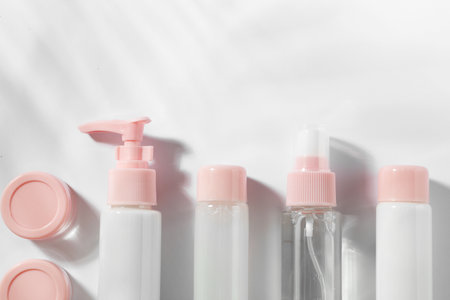1. Understanding the Purpose of Moisturizers
Moisturizers are a must-have in any skincare routine, but have you ever stopped to think about what they really do for your skin? Whether youre reaching for a lightweight day cream or a rich night moisturizer, their core job is pretty much the same: to keep your skin healthy, hydrated, and protected. Let’s break it down.
Hydration: Locking in Moisture
Our skin naturally loses water throughout the day due to weather, indoor heating or cooling, and even cleansing. Moisturizers help replenish that lost moisture and lock it in to prevent dryness. They usually contain ingredients like hyaluronic acid or glycerin, which draw water into the skin and help maintain that dewy glow.
Barrier Protection
Your skin has a natural barrier made of lipids (fats) that keeps moisture in and harmful stuff out. When this barrier is damaged—whether from harsh products, pollution, or just everyday wear and tear—your skin can become irritated or more prone to breakouts. Moisturizers often include emollients and occlusives like ceramides or shea butter that reinforce this barrier and keep your skin calm and protected.
Supporting Overall Skin Health
A good moisturizer does more than just hydrate—it also supports your skin’s overall health by delivering nutrients and calming ingredients that help reduce inflammation, redness, and signs of aging. Depending on your skin type, certain formulas may be better suited for your needs. Heres a quick look:
| Skin Type | What to Look For in a Moisturizer |
|---|---|
| Oily | Oil-free or gel-based moisturizers with lightweight hydrators like glycerin |
| Dry | Creamy formulas with ingredients like ceramides, squalane, or shea butter |
| Sensitive | Fragrance-free products with soothing agents like aloe vera or oat extract |
| Combination | Balanced moisturizers that hydrate without clogging pores; look for non-comedogenic labels |
No matter your skin type, using a moisturizer every day helps maintain a healthy-looking complexion while protecting against environmental stressors. And when it comes to choosing between day and night moisturizers—well, stay tuned as we dive deeper into whether you really need both.
2. Key Differences Between Day and Night Moisturizers
While day and night moisturizers might look similar on the surface, their formulations are designed to meet your skins different needs depending on the time of day. Choosing the right one can make a big difference in how your skin looks and feels.
Day Moisturizers: Protection for the Day Ahead
Day creams are all about defending your skin from environmental stressors like UV rays, pollution, and free radicals. Theyre usually lightweight so they sit well under makeup and keep your skin feeling fresh without getting greasy.
Common Ingredients in Day Moisturizers:
| Ingredient | Purpose |
|---|---|
| SPF (Sun Protection Factor) | Shields skin from harmful UV rays that cause premature aging and sun damage |
| Antioxidants (like Vitamin C or E) | Neutralize free radicals and brighten the skin |
| Hyaluronic Acid | Keeps skin hydrated without feeling heavy or oily |
| Lightweight Emollients | Smooth out texture while allowing the skin to breathe |
Night Moisturizers: Repair While You Sleep
At night, your skin goes into repair mode. Night creams tend to be richer and more nourishing, packed with ingredients that support cell turnover and deep hydration. They often include actives that arent suitable for daytime use due to sun sensitivity.
Common Ingredients in Night Moisturizers:
| Ingredient | Purpose |
|---|---|
| Retinol (Vitamin A) | Boosts collagen production and helps reduce fine lines and wrinkles |
| Peptides | Aid in skin repair and improve firmness over time |
| Ceramides & Fatty Acids | Strengthen the skin barrier and lock in moisture overnight |
| Rich Emollients (like Shea Butter) | Deeply hydrate dry or mature skin during rest hours |
The Bottom Line on Formulations:
If youre wondering whether you really need two separate moisturizers, it comes down to what your skin needs throughout the day versus at night. Day creams focus on protection and light hydration, while night creams aim to restore and renew your skin as you sleep. These differences in formulation are what make using both beneficial for a healthy skincare routine.
![]()
3. Why Your Skin Has Different Needs AM vs. PM
Your skin isn’t the same around the clock—it actually works differently during the day compared to at night. That’s why using a separate moisturizer for morning and evening can make a real difference in how your skin looks and feels.
How Skin Functions Differ Throughout the Day
During the day, your skin is in “defense mode.” It’s busy protecting itself from environmental stressors like UV rays, pollution, and free radicals. At night, it switches to “repair mode,” working to regenerate and heal any damage done during the day. These changes mean your skin has different needs depending on the time of day.
Morning (AM): Protection & Hydration
In the morning, your skincare should focus on protection. This is when your skin faces the most exposure to external aggressors, so ingredients that strengthen your skin’s barrier and provide hydration are key.
Key Ingredients for Daytime Moisturizers:
- SPF: Shields skin from harmful UV rays
- Antioxidants (like Vitamin C): Protect against free radical damage
- Hyaluronic Acid: Provides lightweight hydration without feeling greasy
- Niacinamide: Helps even out skin tone and supports barrier function
Night (PM): Repair & Nourishment
At night, your body goes into recovery mode—and so does your skin. This is the best time to use richer moisturizers with active ingredients that support cell turnover and repair damage.
Key Ingredients for Nighttime Moisturizers:
- Retinol: Boosts cell turnover and targets fine lines
- Peptides: Support collagen production for firmer skin
- Ceramides: Strengthen the skin barrier and lock in moisture
- Squalane: Deeply hydrates without clogging pores
Day vs. Night Moisturizer: What’s the Real Difference?
The biggest differences come down to texture and active ingredients. Day creams are usually lighter and often include SPF, while night creams tend to be richer and packed with reparative ingredients. Heres a simple breakdown:
| Day Moisturizer | Night Moisturizer | |
|---|---|---|
| Main Function | Protects against environmental stressors | Repairs and nourishes overnight |
| Texture | Lighter, fast-absorbing | Thicker, more emollient |
| Typical Ingredients | SPF, antioxidants, hyaluronic acid | Retinol, peptides, ceramides, oils |
| When to Use | Every morning after cleansing | Every evening before bed |
This shift in how your skin behaves between AM and PM explains why one moisturizer might not be enough for both times of day. Choosing formulas designed for specific needs can help you get the most out of your skincare routine.
4. Can One Moisturizer Do It All?
With so many skincare products out there, it’s natural to wonder: do you really need two separate moisturizers for day and night? Or can one hardworking product handle both jobs? The answer depends on your skin type, lifestyle, and skincare goals.
What Makes Day and Night Moisturizers Different?
Day creams are usually lighter and often include SPF to protect your skin from sun exposure. They may also contain antioxidants to fight off environmental stressors like pollution. On the flip side, night creams tend to be richer and packed with ingredients that help repair and hydrate your skin while you sleep—like peptides, ceramides, or retinol.
Key Differences at a Glance:
| Feature | Day Moisturizer | Night Moisturizer |
|---|---|---|
| Texture | Lightweight | Rich and Creamy |
| Main Function | Protect & Hydrate | Repair & Replenish |
| SPF Included | Usually Yes | No |
| Active Ingredients | Antioxidants, SPF | Peptides, Retinol, Ceramides |
When a Single Moisturizer Might Work
If youre someone who prefers a simple routine or youre traveling light, a multitasking moisturizer might be all you need. Some products are formulated with enough hydration for nighttime use but are still light enough for daytime wear. Look for labels like “24-hour moisturizer” or “AM/PM formula.” Just keep in mind they usually don’t include SPF, so you’ll need to add that separately during the day.
A Good Fit If You:
- Have normal or combination skin
- Aren’t using strong active ingredients (like retinol)
- Prefer minimal steps in your routine
- Don’t spend long hours outdoors (you can skip SPF sometimes—but not recommended daily!)
When You Might Need Both
If you have specific skincare concerns—like aging, acne, or hyperpigmentation—you may benefit more from targeted formulas. For example, using a lightweight day cream with SPF and a richer night cream with active ingredients can help address these issues more effectively. Also, if your skin is on the dry or sensitive side, nighttime nourishment becomes even more important.
5. How to Choose the Right Moisturizers for You
When it comes to picking the right day and night moisturizers, theres no one-size-fits-all answer. Your skin type, lifestyle, and specific concerns all play a big role—especially if youre shopping in the U.S., where there are countless options on the shelves. Heres how to narrow down your choices.
Know Your Skin Type
Before anything else, identify your skin type. This helps you choose products that actually work with your skin rather than against it.
| Skin Type | What to Look for in a Day Moisturizer | What to Look for in a Night Moisturizer |
|---|---|---|
| Oily | Lightweight, oil-free, mattifying; look for labels like “non-comedogenic” | Gel-based or balancing formulas with ingredients like niacinamide |
| Dry | Hydrating with SPF; ingredients like hyaluronic acid or glycerin | Rich creams with ceramides or shea butter for deep moisture |
| Combination | Oil-free hydration; something that wont clog pores but still moisturizes dry areas | Balancing creams that hydrate without being too heavy |
| Sensitive | Fragrance-free, gentle formulas with calming ingredients like aloe or oatmeal | Creams with anti-inflammatory ingredients like allantoin or chamomile |
Consider Your Skin Concerns
Your skincare goals can also influence what kind of moisturizers you should use.
If youre dealing with acne:
Avoid heavy oils and look for non-comedogenic ingredients. For nighttime, consider moisturizers with salicylic acid or tea tree oil in small amounts.
If youre focused on anti-aging:
For daytime, go for something with antioxidants like vitamin C and always include SPF. At night, choose products with retinol or peptides to support skin renewal.
If you have uneven tone or hyperpigmentation:
Look for brightening agents like niacinamide during the day, and more intensive treatments like alpha arbutin or glycolic acid at night (used with caution).
Lifestyle Matters Too
The U.S. skincare market offers many multifunctional products—great if youre always on-the-go.
- If you spend a lot of time outdoors: Prioritize SPF during the day and hydrating recovery creams at night.
- If youre often indoors: You might not need high SPF, but indoor air can be drying—go for humectants like hyaluronic acid.
- If youre a minimalist: Look for all-in-one moisturizers with added benefits like SPF and antioxidants during the day, and simple hydrating formulas at night.
Pro Tip: Patch Test First!
No matter what you choose, always patch test new products before applying them all over your face—especially when trying active ingredients common in U.S. skincare formulas.
Picking out the right moisturizer doesnt have to be overwhelming. Once you know your skin type and needs, its easier to navigate through the endless options available in stores like Sephora, Ulta, or even your local drugstore.


